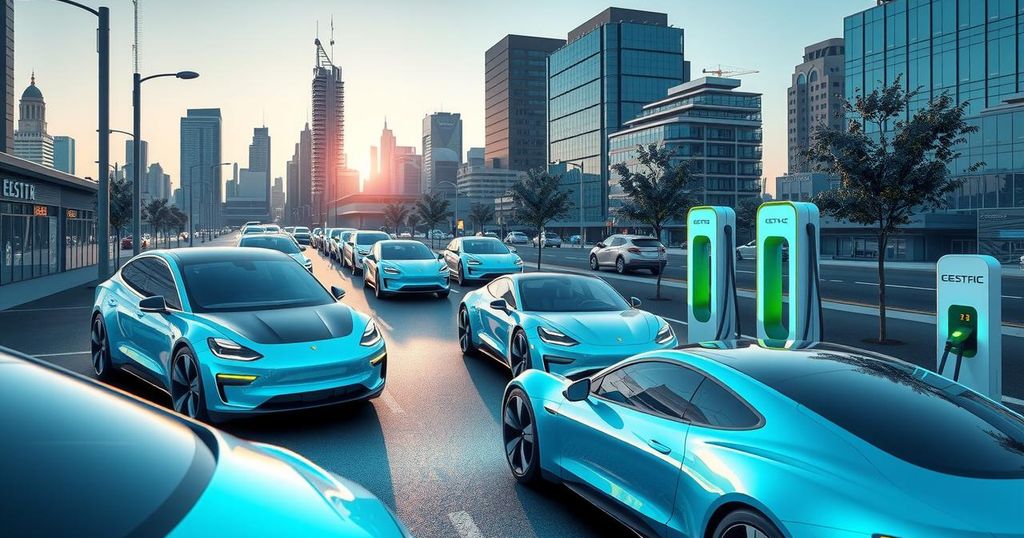Foreign Auto Brands Capitalize on Growth in China’s NEV Market

Foreign auto brands are increasingly investing in China’s NEV sector, leveraging opportunities for growth through partnerships, tailored models, and government support. The evolving market, consumer preferences, and China’s competitive industrial landscape present significant potential for these companies to thrive.
The new energy vehicle (NEV) sector in China has become a focal point for foreign auto brands, promoting substantial foreign investments and expansions. With the global automotive industry transitioning towards NEVs, executives such as Helmut Stettner from Audi FAW NEV Co., Ltd., observe the accelerated shift to electric mobility in China, particularly in the premium segment, presenting notable growth possibilities despite existing challenges.
Recent collaborations highlight this trend; for instance, BMW has aligned with Huawei to enhance digital ecosystems in vehicles for the Chinese market. Furthermore, Tesla’s Megafactory in Shanghai recently commenced exporting Megapack energy-storage batteries, marking a significant leap for foreign enterprises in China’s NEV landscape. Gao Yuning from Tsinghua University emphasizes that China’s NEV market offers immense potential due to a constantly improving business environment and robust industrial and supply chains that attract foreign capital.
China’s anticipated production and sales of NEVs are projected to exceed 12 million units in 2024, solidifying its lead globally. The nation dominates the supply of battery materials and power batteries, highlighting the critical infrastructure developed by the Chinese government, including purchase subsidies and expansive charging networks designed to bolster the NEV market.
Statistics indicate that over 60 percent of vehicles bought under the replacement subsidy policy in 2024 are NEVs, with foreign brands constituting over 35 percent of these purchases. The receptiveness of Chinese consumers to technological innovations has created significant opportunities, encouraging foreign auto manufacturers to adapt their offerings.
Shifts in consumer preferences have prompted foreign carmakers to focus on intelligent features rather than purely cost or range metrics. Companies like Volkswagen have committed to producing tailored models for the Chinese market, evidenced by their agreement with FAW to launch 11 new models by 2026. Ralf Brandstaetter of Volkswagen affirms this approach aligns with their ‘In China, for China’ strategy, ensuring that they meet the evolving demands of Chinese consumers.
The stable trajectory of the Chinese economy and its ongoing commitment to opening up fosters confidence among foreign investors, as highlighted by Gao Yuning, which will undoubtedly continue to enhance their presence in this burgeoning market.
In conclusion, the resurgence of foreign auto brands in China’s NEV sector underscores the significant growth opportunities presented by the country’s evolving market dynamics. Collaborations, adaptability to local preferences, and robust government support create an environment ripe for investment. As foreign companies navigate this framework, their innovative strategies will be critical in addressing consumer needs and capitalizing on China’s NEV leadership.
Original Source: www.shine.cn




